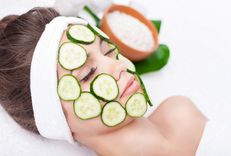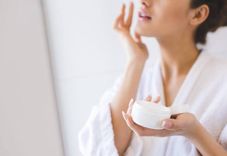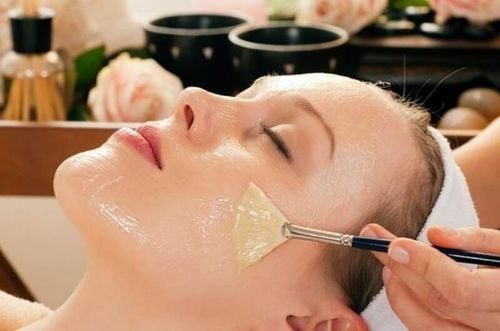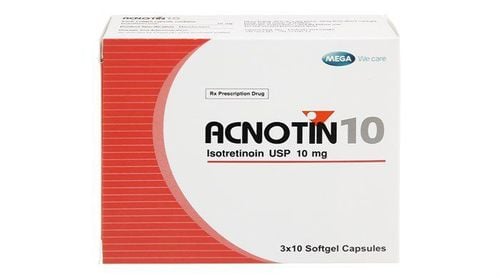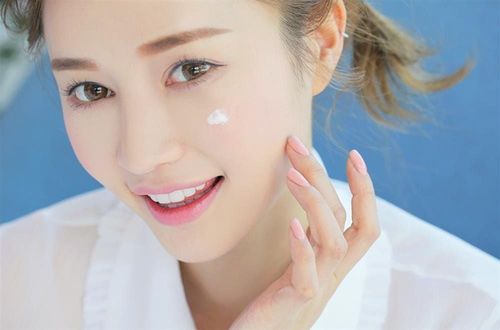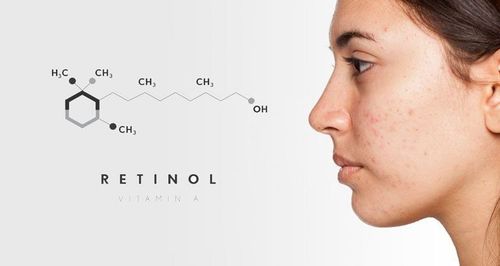Acne occurs when oil and dead skin cells block hair follicles, leading to breakouts anywhere on the body. Tretinoin (Retin-A), a vitamin A derivative, is one of the most commonly prescribed treatments for acne.
1. What is Tretinoin?
Acne is a common skin condition that occurs when oil and dead skin cells clog hair follicles. Sometimes, bacteria can infect the follicles, leading to large, inflamed bumps known as cystic acne.
Acne is most commonly associated with inflamed breakouts on the face in teenagers and young adults, but it can occur at any age and on any part of the body. Most acne develops during periods of hormonal surges or imbalances.
There are many topical products available on the market to treat cystic acne. One of the most commonly prescribed medications is tretinoin (Retin-A), deived from vitamin A.
Topical tretinoin serves as both a short-term treatment and a long-term option for eliminating active acne. Retinoids have been used to treat:
- Acne
- Psoriasis
- Skin aging
- Certain cancers
Tretinoin is one of the strongest and most effective topical retinoids for treating acne and skin aging.
2. Effects of Tretinoin
2.1. Tretinoin’s Acne Treatment Benefits
Tretinoin is a retinoid that stimulates skin cell turnover. Dead skin cells are shed more quickly as new skin cells rise to the surface. This faster cell turnover opens pores, releasing trapped bacteria or irritants that cause acne.
Tretinoin also helps regulate sebum production, which can prevent future breakouts. Additionally, it has anti-inflammatory properties that help clear active pustular acne. Tretinoin is often used to treat cystic acne, a severe form of acne that leads to boil-like infections on the skin. These deep lesions can result in permanent scarring as they heal.
It’s essential to consult a dermatologist to create a treatment plan that keeps your skin as healthy as possible and prevents long-term damage.
2.2. Tretinoin’s Acne Scar Treatment Benefits
Some dermatologists recommend using tretinoin to treat acne scars. Since tretinoin accelerates skin cell turnover, it can promote the growth of new cells at scar sites.
A dermatologist may suggest a technique called iontophoresis. This involves applying an electrical current to the skin treated with medication. In the past, researchers believed iontophoresis could help topical tretinoin penetrate the skin more effectively. Many patients who underwent this treatment experienced significant reductions in acne scar appearance and noticed improved skin quality.
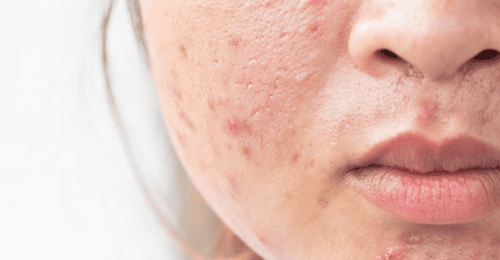
2.3. Tretinoin’s Benefits for Wrinkles
Tretinoin has been extensively studied for its effects on visible signs of aging. Tretinoin cream has shown both short-term and long-term effects on the appearance of wrinkles. This is why tretinoin is a common ingredient in many over-the-counter facial creams.
In some cases, a doctor may recommend tretinoin for purposes other than treating acne, acne scars, and wrinkles, such as:
- Hyperpigmentation or darkening of the skin.
- Keratosis pilaris: A harmless condition that causes small, rough bumps on the skin.
- Cancer.
3. Tretinoin Products
There are several different tretinoin products available on the market, all of which are used topically. Tretinoin can come in the form of a gel, cream, or solution.
- Tretinoin cream is thicker and often contains the highest concentration of the medication, but it tends to work slower and causes less irritation.
- Tretinoin gel is clear and contains a lower concentration of the medication, but it works faster and can cause more skin irritation.
- Tretinoin solution tends to have the lowest concentration of the medication and the highest water content, making it the easiest to absorb.
Tretinoin products with higher concentrations are typically used to treat cystic acne, which is the most severe form of acne. A doctor will help determine which type of tretinoin is best suited for your needs.
4. How to Use Tretinoin Cream
If you want to use tretinoin to treat acne, start with a cream or gel with a lower concentration (0.1%). If needed, you can gradually increase the concentration as your skin becomes accustomed to the treatment.
To use tretinoin safely and effectively, follow these steps:
- Cleanse your skin with warm water and pat it dry before applying tretinoin. Wash your hands thoroughly before applying any skincare products to your face. Wait a few minutes to ensure your skin is completely dry before using the medication.
- Apply a small amount of the medication to lightly cover the affected areas. You don't need to apply a thick layer of tretinoin. A pea-sized amount is enough to cover your entire face.
- Use your fingertips to apply the medication, avoiding sensitive areas like the eyes, nostrils, and lips. Gently rub the tretinoin cream or gel onto your face and allow it to fully absorb.
Apply tretinoin once before bedtime to allow the product to fully absorb into your skin. It's best not to apply makeup immediately after using this medication.

5. Side Effects of Tretinoin
Using tretinoin for acne can cause some side effects. However, not everyone experiences all of these side effects, and the severity of symptoms can vary between individuals. Possible side effects of using tretinoin include:
- Skin burning or itching
- Peeling or redness of the skin
- Excessive dryness
- Feeling warmth when touching the skin
- Skin lightening at the site of application
It may take up to 12 weeks to see results from using tretinoin. If your skin seems irritated, consult your doctor to check whether the symptoms are normal.
If after 8 to 12 weeks you see no improvement in your skin, talk to your dermatologist about continuing tretinoin treatment or considering other treatment options.
While using tretinoin, be cautious when exposed to sunlight. Like all other retinoids, tretinoin can thin the skin, making it more vulnerable to damage and sunburn. Be sure to apply sunscreen whenever you go outdoors and consider using additional sun protection measures, such as wearing a wide-brimmed hat.
Overdose of over-the-counter tretinoin is very rare. Overdose is more likely to occur with prescription-strength tretinoin. Signs of an overdose include difficulty breathing or loss of consciousness.
If you believe you're having an allergic reaction or experiencing severe side effects from tretinoin, stop using it immediately and seek medical attention.
6. When Should Tretinoin Not Be Used?
As one of the most commonly prescribed topical treatments for cystic acne, tretinoin is considered safe for most people. However, in certain situations, you should avoid using tretinoin due to potential health risks.
Do not use tretinoin in the following cases:
- You are trying to become pregnant, suspect you are pregnant, or are breastfeeding.
- You have eczema or other chronic skin conditions, especially on your face.
- You are sunburned.
- You are sensitive to sunlight.
- You are using photosensitizing drugs such as thiazide, tetracycline, fluoroquinolones, phenothiazines, sulfonamides, etc.
Do not use tretinoin in the following cases:
You are trying to get pregnant, think you may be pregnant, or are breastfeeding. You have eczema or other chronic skin conditions, especially on the face. Being sunburnt. Sensitive to sunlight. Are taking photosynthetic drugs such as thiazides, tetracyclines, fluoroquinolones, phenothiazines, sulfonamides, etc. . .

7. Tretinoin Drug Interactions
Tretinoin can interact with other topical acne treatments, causing skin irritation or worsening side effects such as burning sensations. Unless these treatments are part of a plan discussed with your doctor, avoid using other topical treatments like salicylic acid, benzoyl peroxide, and sulfur-containing products while using tretinoin.
Additionally, avoid products that dry out the skin, such as astringents and alcohol-based cleansers. Tretinoin is an effective long-term treatment for acne. While it may not work for everyone, studies show that tretinoin promotes cell turnover, helping even out skin tone, treat acne, and reduce the appearance of acne scars. Tretinoin can worsen acne in the initial weeks of treatment, but within the following weeks, you will start to see noticeable results.
The effects of tretinoin on the skin can be significant. However, to ensure effective treatment for acne and other skin concerns, it is recommended to consult with a doctor before using it.
To arrange an appointment, please call … or make your reservation directly HERE. You may also download the MyVinmec app to schedule appointments faster and manage your reservations more conveniently.
Reference source: healthline.com

